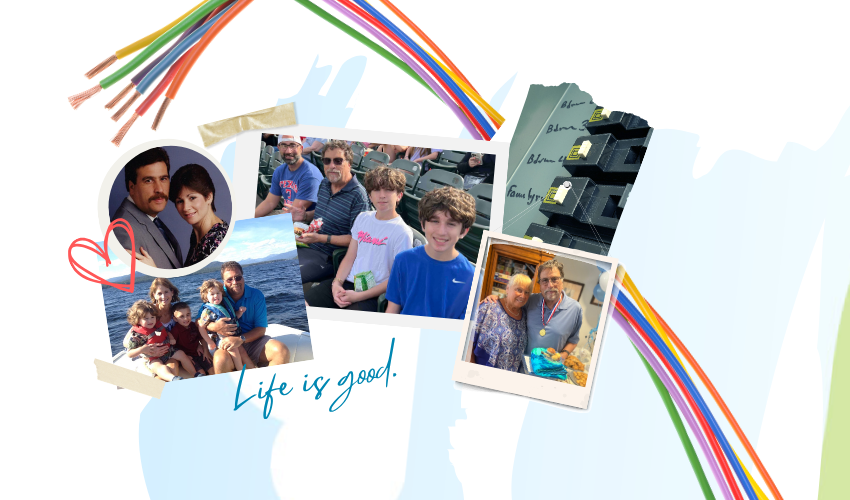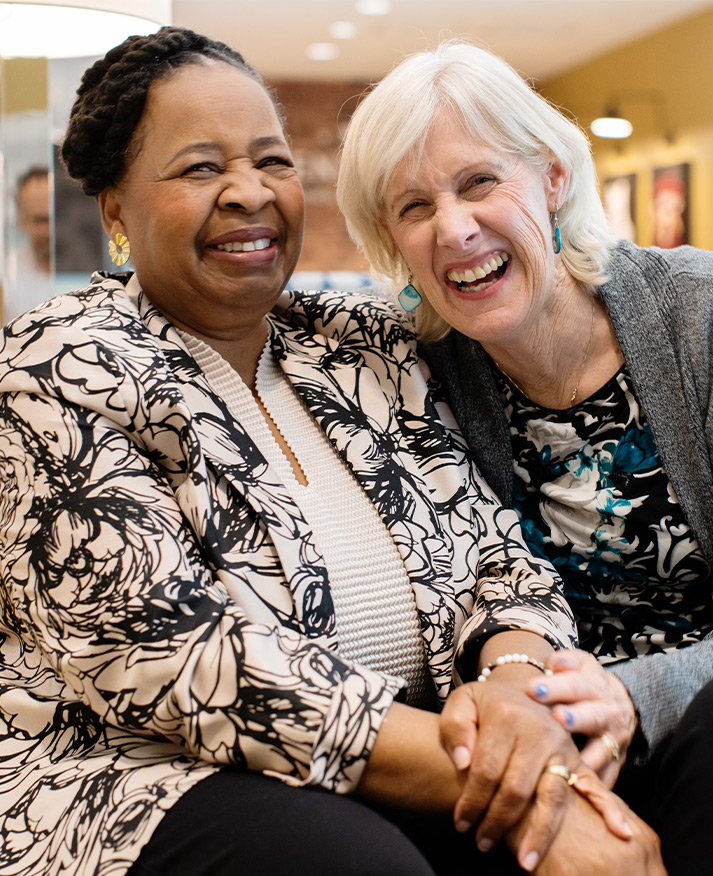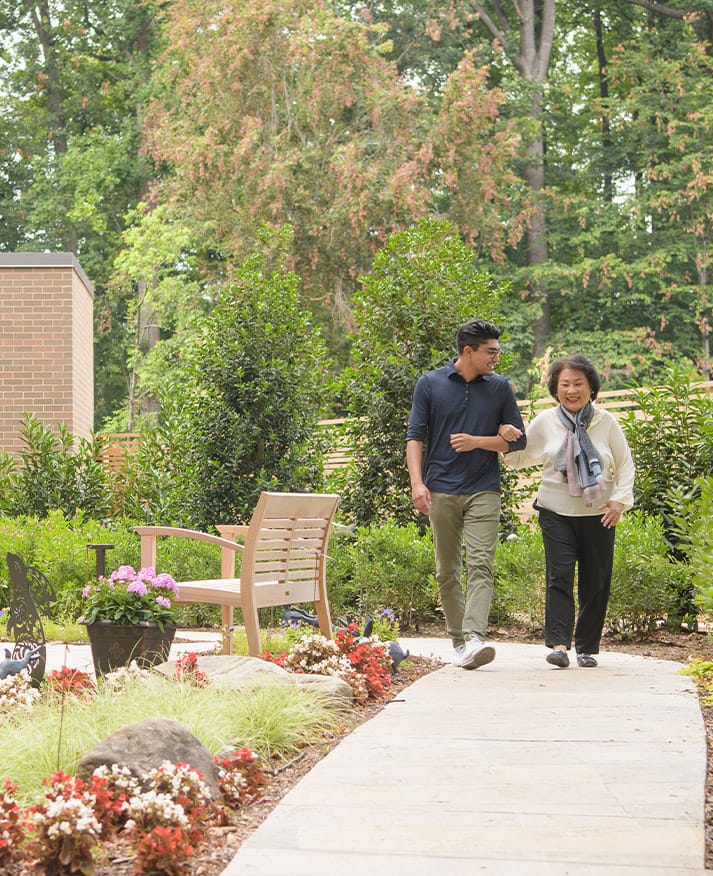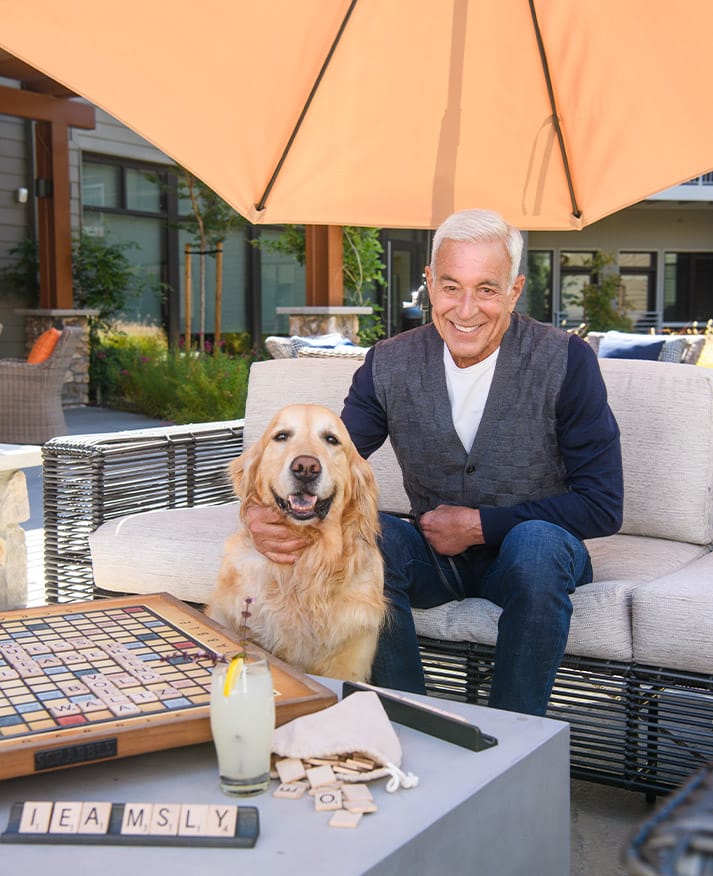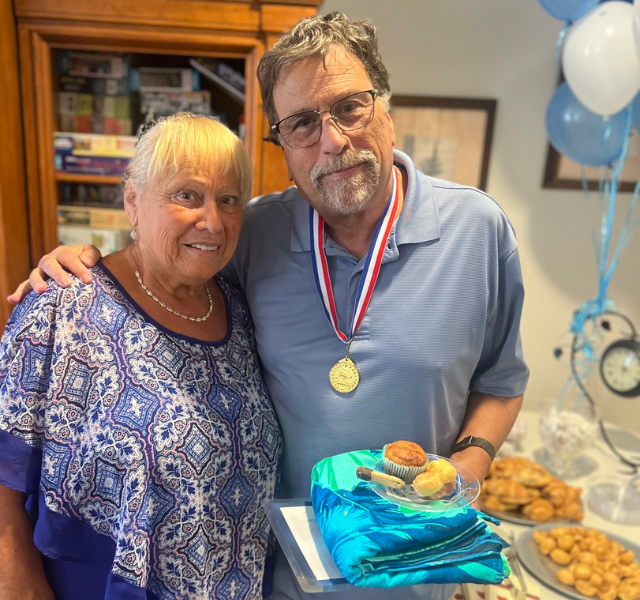
Ernie
Calm, Clear, Present
A self-proclaimed blue-collar man, Ernie initially struck me as someone who was more accustomed to doing than to talking. But as our conversation unfolded, it became clear that every word he offered was deliberate, grounded, and deeply resonant.
“I’m probably a lot tougher than I thought I was,” Ernie shared, noting how certain aspects of life become more difficult over time. “It gets rougher as you get older. Losing people. Losing friends. Can’t do what you used to do.”
Yet, alongside those hardships, he’s found a surprising ease in opening up emotionally. “I kind of open up more to my son. My friends, we’re all blue-collars, but we do talk a lot more stuff than we used to.”
When his wife’s health began to decline, the decision to relocate to a retirement community wasn’t about what he wanted, it was about what they needed. “I wanted to stay in my house forever, but I knew it couldn’t be done.” Moving to a senior living community meant being closer to family, to support, to help. It meant giving her comfort in a time of uncertainty.
Coping with the grief of change is a heavy weight to bear, made even heavier when faced with multiple challenges at once — like watching a beloved spouse face illness while also saying goodbye to the home where a lifetime of memories was made. Navigating these major life transitions takes immense strength, patience, and grace. For Ernie, pushing himself and staying busy — reading, going for a walk, learning new things, talking to friends — helped him stay resilient through difficult times.
The more I listened, the more his quiet clarity came into focus. Beneath his measured words was a simple but powerful truth: with time comes perspective. As Ernie put it, “Now that you could reflect on stuff, you realize a lot of stuff was — you worried for no reason. And you just cared about stuff you shouldn’t have really cared about.” His reflections weren’t dismissive of life’s challenges; instead, they offered a way of reframing how we view them. These all-consuming thoughts and fears eventually fade in the light of lived experience, illuminating what is most important.
“And your world shrinks a little bit. Which is good,” he continued. “I hardly watch the news that much anymore. I’m not arguing with anybody anymore, so I can walk away from a fight now.” Over time, Ernie learned to let go of what doesn’t matter and hold tighter to what does.
For someone who was used to taking charge and doing things himself, adapting to this new chapter in life was a gradual process. Each day, he wakes up, goes to breakfast, and finds ways to stay busy. He’s met neighbors and made new friends at happy hour each Friday, and has ventured out for community outings, like the trip to Riders Field to watch a baseball game — an especially memorable experience because his son and grandchildren joined in the fun. Ernie makes time to pursue lifelong hobbies, too. As a retired maintenance technician, he’s found joy in simply strolling through the community, carefully assessing the building to determine how the electrical system is wired.
When I asked if there was anything he found himself doing now that he never would have imagined years ago, I expected something light — a class, a club, a new routine. Not only did his answer catch me by surprise, it underscored the purpose of this entire project.
“I never would have done this interview ten years ago.”
Ernie’s response wasn’t just a reflection of personal growth, it was a testament to how far he’d come in allowing space for vulnerability.
When Megen and I began reaching out to communities in search of participants willing to share their stories, we placed a strong emphasis on our goal to ensure residents understood how their personal narratives would be used. Our mission was to delicately capture people’s deeply intimate emotional journeys and elevate their voices as a way to connect with others silently navigating their own struggles, offering reassurance that they are not alone.
The more I reflected on Ernie’s statement, the gravity of his words settled in. His willingness to step outside his comfort zone was an act of quiet resilience. Finding the courage to share his perspective in hopes that it might help someone else was not only selfless, it serves as a beautiful reminder of how the weight we carry often feels lighter when shared, and in speaking our truth, we help others feel less alone in theirs.
Listen to an excerpt from Ernie's interview.
To view the complete design of this article, visit the digital magazine here.
